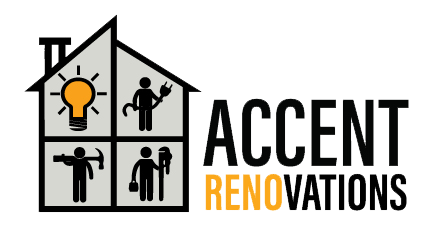With the increasing number of home improvement, do-it-yourself reality TV shows there are more home owners taking their renovation projects into their own hands. While it’s great to get hands on with your home, remember that some tasks can be more extensive than you might think at first. You want to make sure you don’t fall in to these common pitfalls that can add time, expense, and headache to your home renovations:
1) Not taking out the required permits.
For some jobs, such as putting in a wood stove, you need proof of the permit or your insurance carrier won’t cover it. Not sure if your job requires a permit? The rule of thumb is that you need one for anything larger than painting and wallpapering.
2) Starting a job without the necessary tools and supplies.
You will slow your progress if you do not have the materials or the tools for the job BEFORE you begin work. Beware of bargain bin tools – they tend to be inefficient. Remember, Pro’s can get the job done because the invest in reliable tools.
3) Inadequate preparation of the job site.
Nothing slows down a job more than not having all the materials you need. Proper preparation of the job site is also important when you consider that some materials (i.e. timber) will be unusable if you have stored it outdoors where it can be exposed to the elements.
4) Skimping on materials.
Cheaper materials may be easier on your bank balance, but they are not the best option in the long run.
5) Using the wrong paint.
Painting is one of the most popular DIY Projects around, but be sure to use the correct type of paint for the surface. There are lots of options for indoor & outdoor paint, make sure you know which is best for each application.
6) Improper preparation of walls for painting.
A quality paint job requires 90% preparation to be successful. Cutting corners in this area will dramatically impact the end result.
7) Unsafe job conditions.
Nothing diminishes your return on investment like a trip to the emergency room. You also want to be aware of your liability and the personal safety of anyone who is on your job site during the project.
8) Inaccuracy.
Inaccuracy is the biggest pitfall a DIY can encounter. The rule of thumb is always measure twice, cut once.
9) Working beyond your limits.
You need to know what your DIY limits are and to bear in mind that it is always advisable to hire a professional when it comes to roofs, electrics, plumbing or gas.
10) Failure to research your project.
You don’t want to start to learn how to do a project on your own house. It’s best to get some experience helping out an experience friend, preferably a professional contractor.
All in all it’s advisable to work with an experienced professional when it comes to most home renovations. Although DIY can seem like a frugal option, in the long run you could end up spending more time and money than you initially intended. For quality result you can trust, work with a pro.
